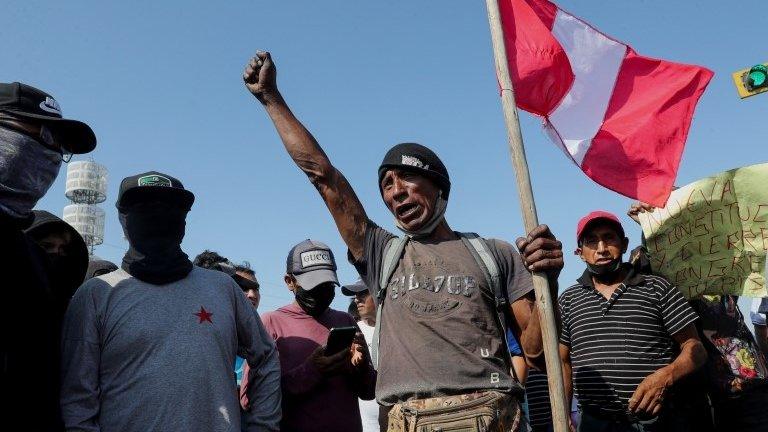Pedro Castillo: Peru's leader ousted over 'rebellion attempt'
- Published
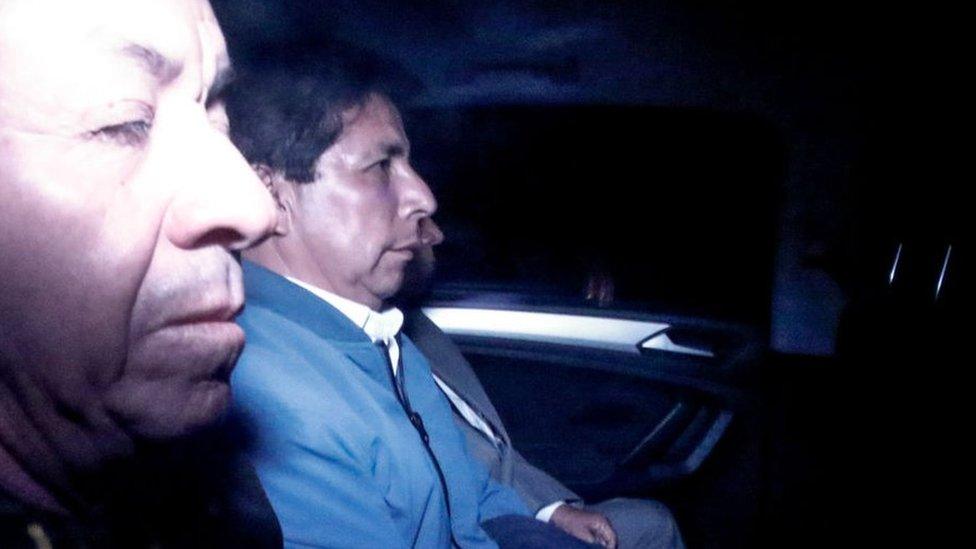
Former President Pedro Castillo (right) seen inside a police car in Lima
In a dramatic turn of events in Peru, Pedro Castillo, who less than 24 hours ago was president, is in police custody facing likely charges of rebellion.
His fall from power was swift.
Facing an impeachment vote by the opposition-controlled Congress, he announced he was dissolving the legislative body.
Congress defied him, voted overwhelmingly to remove him from office and his bodyguards stopped him from seeking refuge at an embassy.
Just hours after impeaching Mr Castillo, Congress swore in his vice-president, Dina Boluarte, as the new president.
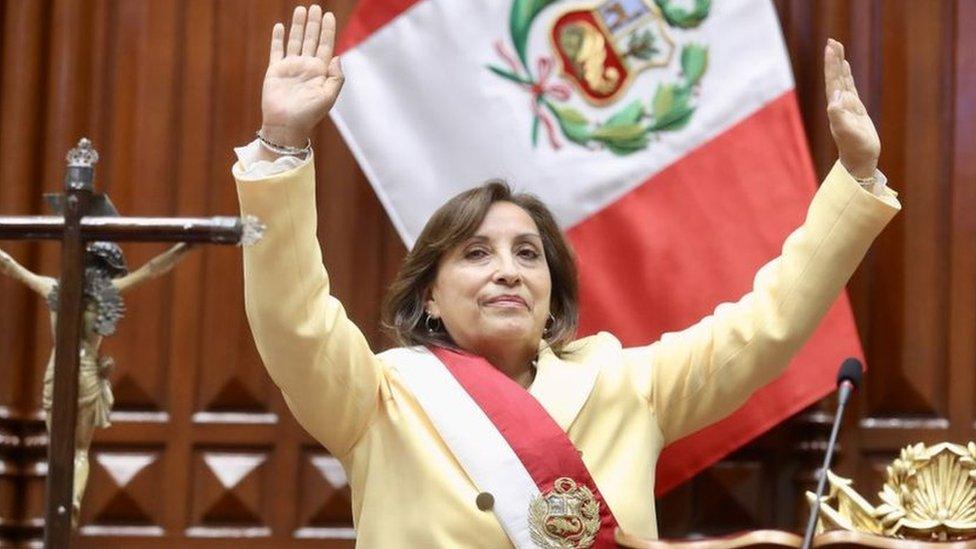
Dina Boluarte said she would govern until 2026
Ms Boluarte is the first woman to lead Peru. She said she would govern until July 2026, which is when Mr Castillo's term would have come to an end.
While Ms Boluarte was Mr Castillo's running mate in the 2021 election which brought them to power, she quickly distanced herself from him on Wednesday when he tried to dissolve Congress, a move she said was an "attempted coup".
Speaking after being sworn in, she urged Peruvians to come together for "national unity" and asked for a "truce" to allow her to fight corruption.
While she was taking the oath of office, her predecessor was already in the custody of the police.
Following his televised announcement, which he had delivered nervously with his script clearly shaking in his hands, he was quickly abandoned by many of his allies.
Watch: Three dramatic moments from the day Peru's president was ousted
The head of the constitutional court said Mr Castillo's dissolution of Congress was in violation of the constitution.
A raft of ministers, including the defence minister, resigned within minutes. The police and the armed forces released a joint statement saying they would abide by the constitution.
Mr Castillo and his family left the presidential palace and got into an SUV. A police report suggests he was heading to the Mexican embassy in Lima, presumably to claim political asylum.
But according to a report by Peruvian daily El Comercio, top police officials told the security officer who was driving the car to stop the vehicle.
Mr Castillo was then escorted onto police premises where Peru's attorney-general detained him on suspicion of rebellion.
Allow X content?
This article contains content provided by X. We ask for your permission before anything is loaded, as they may be using cookies and other technologies. You may want to read X’s cookie policy, external and privacy policy, external before accepting. To view this content choose ‘accept and continue’.

Media reports suggest Mr Castillo has since been moved to the headquarters of the police special operations branch.
Asked whether Mexico had received a request for asylum from Mr Castillo, Mexican Foreign Minister Marcelo Ebrard declined to comment but did point out that his country had a history of granting asylum to those facing "political persecution".
In 2019, the former Bolivian president, Evo Morales, sought asylum there shortly after his resignation from office.
But with Mr Castillo already under investigation by the attorney-general's office for alleged rebellion, he is unlikely to be allowed to leave Peru.
The attorney-general's office said it was gathering evidence and investigators could be seen taking away boxes from the presidential palace and a number of ministries overnight.
Dramatic end to shaky presidency
Mr Castillo's presidency has been rocky even by Peru's standards, a country which in 2020 had three presidents within the space of five days.
The left-wing former school teacher narrowly beat his right-wing rival Keiko Fujimori to the presidency in June 2021.
But with little political experience and facing a hostile Congress, the 53-year-old who often attended official events wearing a wide-brimmed hat, quickly appeared out of his depth.
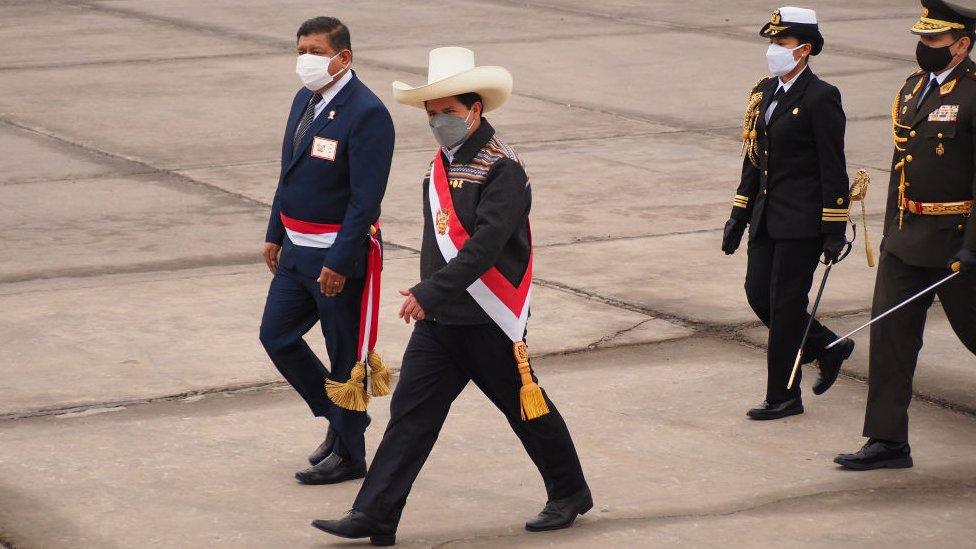
Mr Castillo was often seen wearing his trademark hat, even when inspecting the troops
His cabinet underwent constant change and during his 18 months in office he had five prime ministers.
His time in office was also overshadowed by allegations of corruption, which Mr Castillo said were part of a "political persecution".
'Moral incapacity'
Pressure on him was building as he and also members of his family came under investigation for alleged fraud and influence peddling.
On Wednesday, he was facing a fresh attempt to impeach him for "moral incapacity".
While two previous attempts had failed to get the necessary votes, Mr Castillo must have feared this third motion had the potential to unseat him.
In his televised address, he said that "in response to citizens' demands throughout the length and breadth of the country, we have decided to establish an exceptional government aimed at re-establishing the rule of law and democracy".
But opinion polls suggested many Peruvians disapproved of his handling of the country. In April, 76% of people questioned in a Ipsos polls said their impression of Mr Castillo was a negative one.
A small group of his supporters did take to the streets on Wednesday, with one demonstrator holding up a sign reading "Pedro, we are with you".
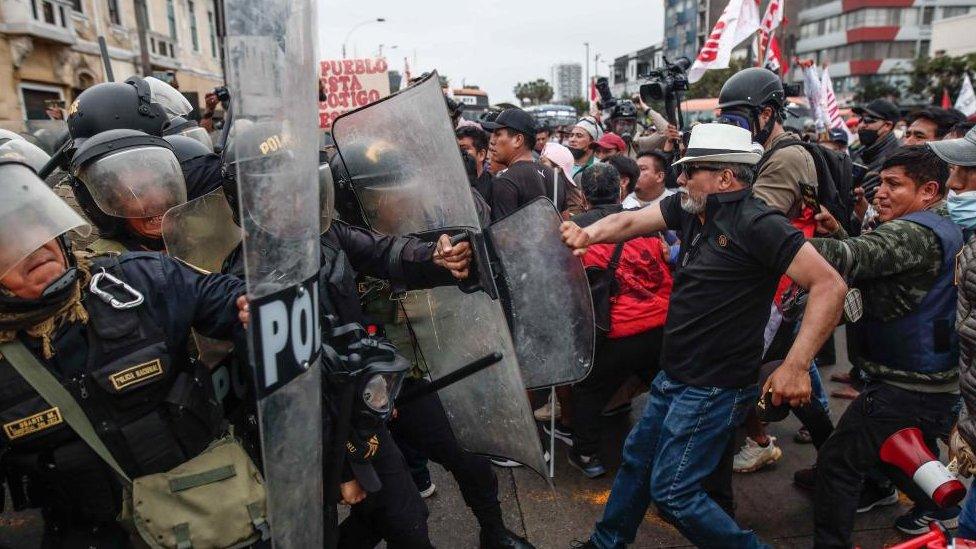
There were skirmishes between police and angry Castillo supporters in the capital Lima
But thousands had earlier turned out to vent their anger at what they said was his "attempted coup".
Challenges ahead
All eyes are now on the new President, Dina Boluarte, to see who she will choose for her new cabinet.
A former lawyer who was something of a political unknown before being chosen as Mr Castillo's running mate, the 60-year old has asked for "space" and "time to rescue the country".
She has received - among others - the backing of the US, which said that it would "support Peru under the unity government President Boluarte pledged to form" and that of Brazil, whose president-elect wished her success in "healing her divided nation and leading it down the path of development and social peace".
But winning the trust of Peruvians, many of whom are wary of politicians in general and tired of the infighting within Congress which has seen so many of her predecessors fall, will be a challenge.
Related topics
- Published6 November 2022
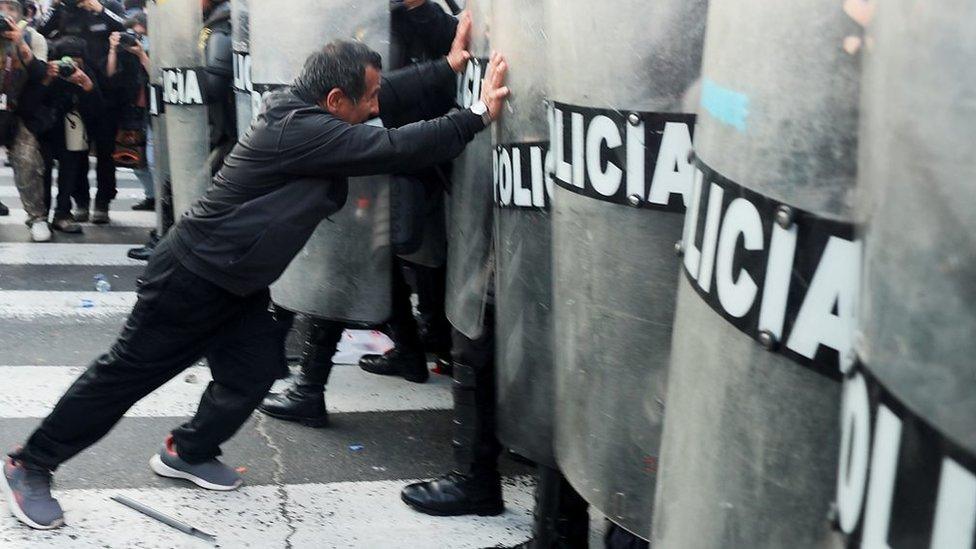
- Published12 October 2022
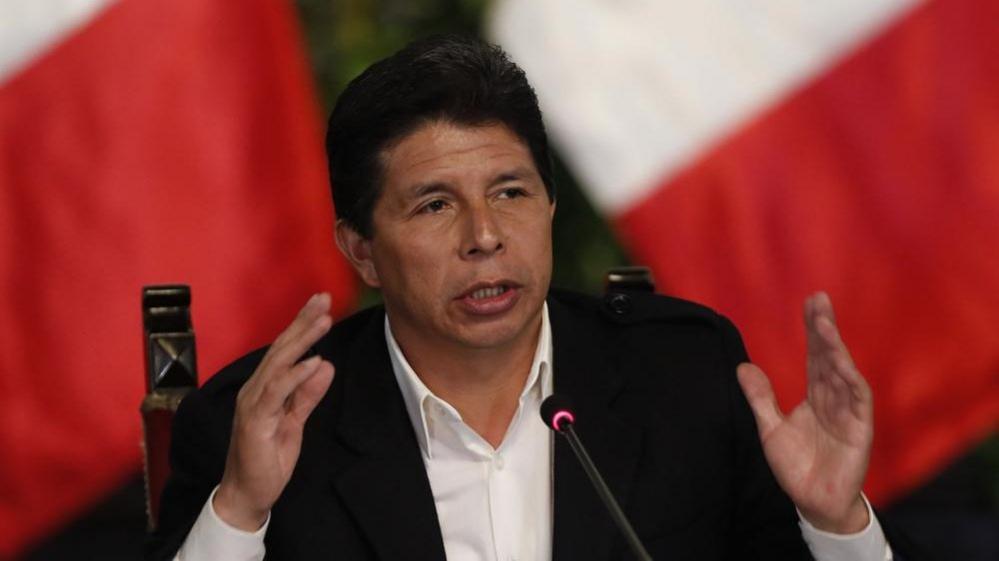
- Published5 April 2022
